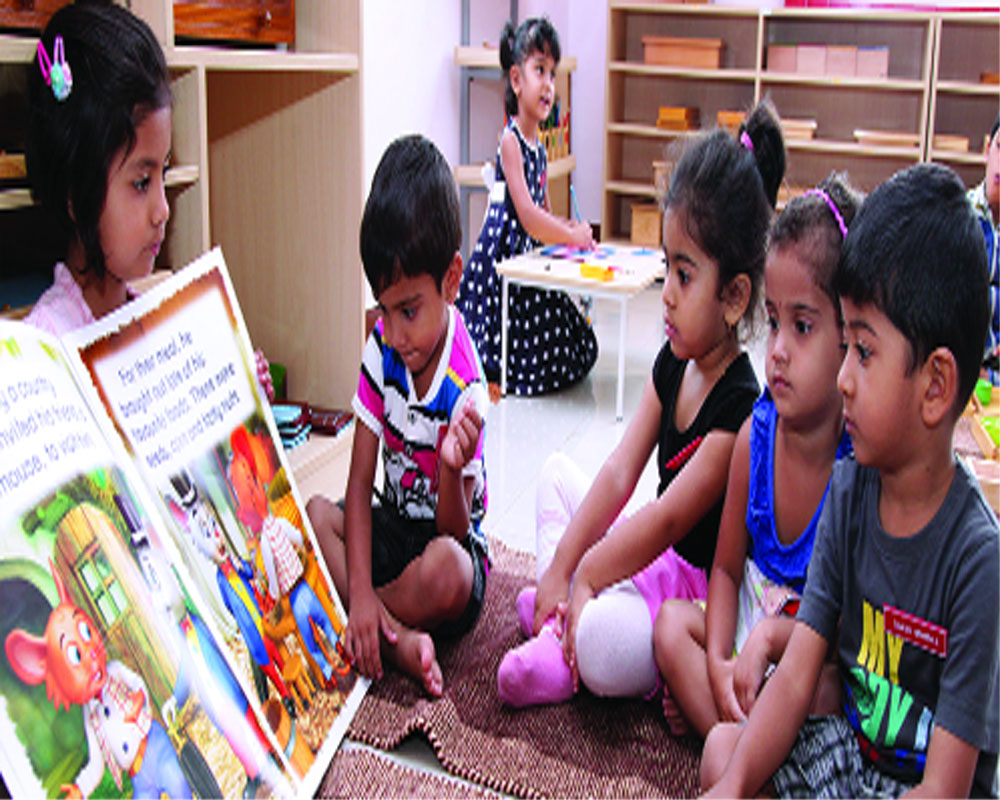Peer learning provides a holistic and qualitatively enhanced education that prepares students to be industry ready, says Beas Dev Ralhan
Peer learning can be defined as students learning from and with each other in both formal and informal ways. The learning module can provide a support system among students, and the interchanging roles of teacher and learner create a dynamic learning experience.
The learning pedagogy is part of an active learning strategy, which is being increasingly used in schools around the world. In this mode of learning, students interact with their peers and learn from each other without any supervising authority. This creates an environment of open communication which is very important for learning. Research suggests that students who engage in an open and free environment perform better.
The best learning happens when students are left to their own devices. It is well known that students become talkative when the teacher exits the class. This may not be a bad thing as the natural interest among students to interact with each other can be leveraged to an academic benefit.
In a peer learning groups, students can search for, collect, review, analyse and apply their knowledge as per their individual capacity. They will engage each other intellectually, debate each other’s views, reaching an agreement or a disagreement.
Studies have demonstrated that the cognitive process of doing exercises together, raising questions and arriving at conclusions will greatly help assimilate knowledge, enhancing a student’s understanding of the lesson. This process enhances ‘deep learning’, wherein the information is retained in long term memory, rather than ‘surface learning’, where information can dissipate very fast from memory retained in the class.
Need Peer Learning Pedagogy
One-sided instruction from teachers is generally not effective. In the absence of interactivity, students become passive receivers of information. This can make them completely dependent on teachers for all their learning needs. It also promotes rote-learning which can be detrimental to their academic pursuits.
Rigid classroom structures can impede the academic development of students. Those who work towards getting good grades will formulate answers in accordance to what they think the teachers’ questions might be. This can be limiting. Some students don’t participate in class due to the fear of answering the teacher incorrectly. This severely hinders the student’s expression in the classroom. Most students fear the judgement of teachers. Peer learning removes all these impediments improving the student’s academic and collaborative skills.
With peer learning, students help their classmates by way of mutual tutoring and feedback. They also get to express their ideas without fear of judgement. This can enhance communication in the classrooms.
Objectives & Benefits
The objective is to develop responsible and autonomous learners. When students are given the responsibility of their own learning, it increases their engagement in their academics and creates an atmosphere of collaboration and communication. Educators can also facilitate effective communication among student groups with activities that create a productive learning environment. When the environment is encouraging, it can effectively block disruptive or negative behaviours in the classroom and develop positive relationships. To acquiring knowledge, a collaborative peer learning group develops self-directed learning skills.
It also develops critical thinking, problem-solving, interpersonal and communication skills.
Teacher’s role
In peer learning, students are left to themselves to discuss and debate. The teachers, however, can play the role of facilitators and moderators. They can issue directives with regard to the agenda of the discussion, provide timely inputs and review the activity which makes sure that the time spent in peer learning is fruitful and in-line with the learning goals.
Not every student is keen on participating in a peer learning activity. The teachers have to step in to subtly motivate these students and engage them by providing creative tasks that make learning interesting. Teachers can also provide additional resources to students like audio or video inputs to aid faster learning, which will make the process more engaging.
To harness the peer learning pedagogy, we need to first understand what it can and cannot do. It should be understood that peer learning cannot replace the instruction from a regular teacher.
Available Tools
The products and solutions seamlessly facilitate pedagogies like peer learning. Some textbooks put a major emphasis on activities that foster collaboration and discussion among students. Computer Masti, the comprehensive Computer Science curriculum solution, has hands-on exercises where students work as a team to brainstorm and come up with solutions to challenges. Teacher manuals are also provided to help the teacher plan lesson-based activities for their class.
TeachNext, India’s largest selling digital classroom solution has experiments and activities like Think, Pair, Share with videos of experiments and other exercises that students can group together and work on. The NextGurukul portal is a free and open online platform for the K-12 community where students, teachers and parents can connect. Students can team up with other students from across the country to engage in discussions and learn from each other. It’s a great place to connect, learn and share with peers. The ecosystem offers unprecedented support to the student community with articles, interviews, hands-on activities, competitive papers and more.
Information technology is rapidly changing the education system. The increasing use of smart devices offer many new learning opportunities to students. Technology is also changing education from being a teacher-centred instruction to a learner-centred education, where students take greater responsibility to manage their learning. Pedagogies like peer learning can be effectively harnessed when institutions actively adopt and integrate technology to enhance the overall learning experience.
The writer is co-founder and CEO, Next Education India Pvt Ltd


























